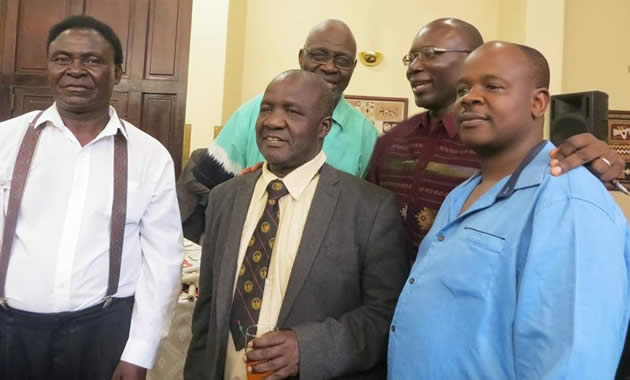Is Zim literature at the crossroads?

Lovemore Ranga Mataire The Reader
THE origins of Zimbabwean literature are as old as the origins of mankind. The mere fact that since time immemorial Zimbabweans have had a firm belief in the esoteric forces that governed their well-being is a clear indication of the existence of art in all its various forms. Well before the written word became a medium for communication, Zimbabweans have always had a reservoir of a myriad rich oral literature ranging from poetry, praise songs, war songs, prayers, rainmaking, marriages and the popular mahumbwe and other game plays were all part of the Zimbabwean way of life celebrated by both the young and old.
It is important to note that this reservoir of literature or art forms was not a product of desperate impulsive desire for a communication tool but were developed over time and in turn every symbol is meaningful and relevant to particular circumstances. The literature evidently reflected the Zimbabwean mentality, sensibility, morality and philosophy.
In the words of Josiah Nyanda (Moto Magazine, 2000) all these art forms are “symbols of African aesthetic and (evidence) that the world of African world of art has never been asleep and did not need any foreign or local critic to define it. Rather, it defined itself”.
It is from this reservoir that centuries later gave birth to Charles Mungoshi (Waiting for the Rain, 1975), Dambudzo Marechera (House of Hunger, 1979), Chenjerai Hove (Bones, 1988), Shimmer Chinodya (Harvest of Thorns, 1989), Tsitsi Dangarembga (Nervous Conditions, 1988) and Yvonne Vera (Nehanda, 1993), Patrick Chakaipa (Karikoga Gumi Remiseve, 1958) just to mention a few Zimbabwean authors that became the foremost social, political and cultural interpreters of our conditions as Zimbabweans and in a broader sense Africans.
While it is an agreed fact that the birth of Zimbabwean classic literature is as much influenced by early European writers, it is also an incontestable fact that it was also largely shaped by the esoteric African forces and experience.
Sadly, decades later, it seems Zimbabwean literature is sliding backwards into some kind of post-modernist narrative that has subconsciously allowed itself to be defined by the discourse of European prejudicial stereotypical images of Africa in the tradition of Joseph Conrad’s Heart of Darkness, which depicts Africa and its people in the most denigrating and despicable terms of being mere “cardboard characters” devoid of any intellect.
A perusal of the texts by so-called contemporary authors like No Violet Bulawayo makes one wonder in whose interests she is writing? The bane of Zimbabwe’s literature today is that those who have assumed the self-appointed mantle of being contemporary authors either by default or design seem to be all domiciled in some white Western capitals and inadvertently view their Lilliputian measure of success by the genuflections of those that sponsor and fund their writings.
There is a serious pervading mimicry of the erstwhile colonisers by so-called contemporary authors, which is disturbing and disabling. This colonial mimicry is couched within the framework of mimicking what they perceive as the “original” and “true” and is at the source of power.
It seems our emerging authors are always searching for some kind of self-fulfilment and to curve a niche for themselves in the eyes of their benefactors. Scepticism and self-denigration becomes the hallmark of their narrative typifying the internalisation of received colonial prejudices as illustrated by Frantz Fanon in Black Skin, White Masks and The Wretched of the Earth.
It cannot be doubted that Zimbabwe is in dire need of some kind of regeneration. There is need for a collective effort to rescue Zimbabwean literature from its current damning status.
Whether one has been educated in Europe or Africa, it is a matter of duty to dignify the survival and sustenance of his or her own people without necessarily glossing over the “pitfalls of national consciousness”.









Comments